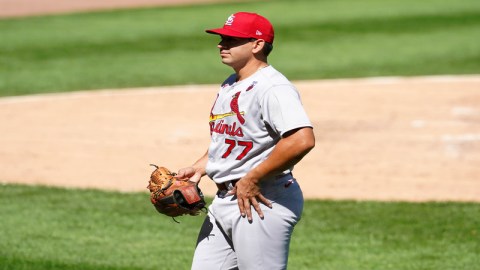The results of the FIFA kickbacks scandal that have already lead to the banning and resignation of two high-ranking FIFA officials has now extended its reach to the International Olympic Committee (IOC).
Joao Havelange, who led FIFA from 1974 to 1998, resigned from his post in the IOC just days before he was due to face a suspension for his involvement in the FIFA kickbacks scandal.
The IOC had opened an ethics case around the kickbacks that involved television rights and pay-offs of around $5 million. It was expected that the ethics rulings would lead to an immediate suspension for Havelange that could last as long as two years.
Sepp Blatter, FIFA president and IOC member, had tried to stall the verdict and personally vouch for his friend although the evidence against Havelange and his brother-in-law Ricardo Teixeira (current president of the Brazilian Soccer Federation) continues to build.
The reaction of the two governing bodies, both constantly under watchful eye regarding corruption, makes it clear that FIFA and the IOC do not face the same dilemma, nor do they stand for the same things.
While corruption is likely to exist in both organizations due to their international reach and power, FIFA's current scandal reeks of that of an old boys' club rather than a multinational company. Its reaction to the corruption case has included not allowing past members to be investigated, or halting investigations int past World Cup bids like the Qatar case, inspiring much of the public backlash.
FIFA has only fired members that were a direct threat to its organization, not simply any members that had committed criminal acts. The IOC's pressure on one of its most important members proves it has no issues with loyalty, but rather appearance.
There can't be much to read into the firing of a 95-year-old man that served as a mere figure head — much like he currently is as FIFA's honorary president — but the pressure put upon him by the IOC (enough to force his unceremonious resignation) proves that the IOC is set on protecting its organization, not its members. To some, that may be an admonition, but for many it's the lesser of two evils.
The IOC has done what was needed, in some regards, to distance itself from the growing chaos among the FIFA elite until a corruption scandal emerges within its own home and not just that of their friendly neighbors.
For more sports news, visit Terra.com.



